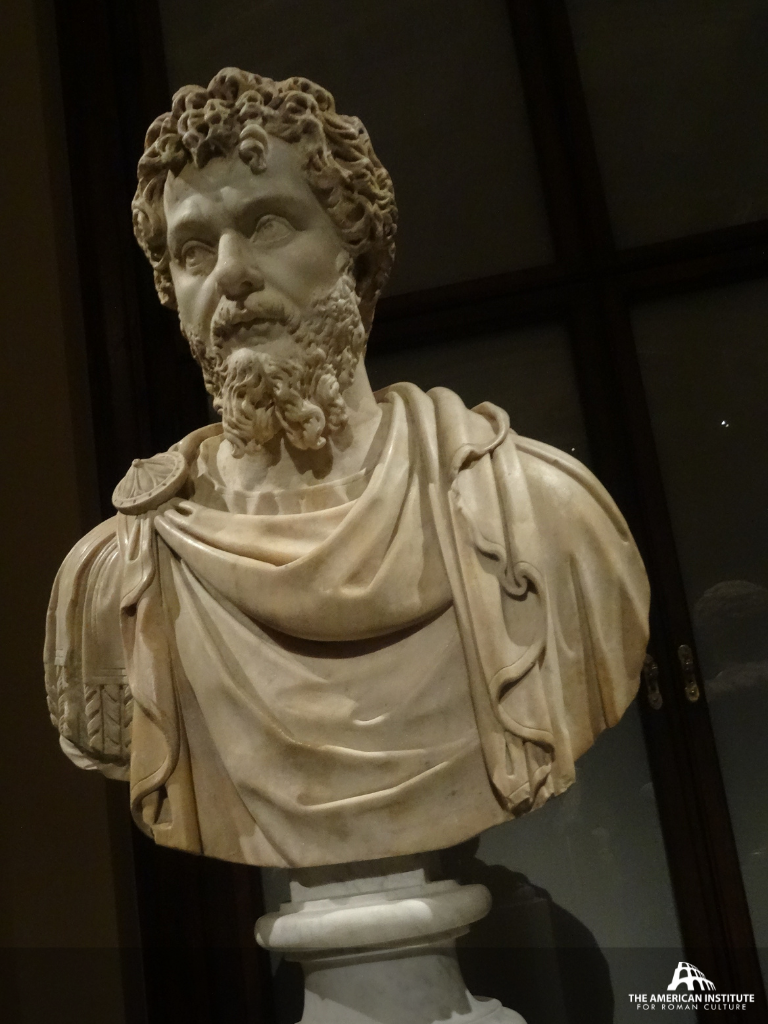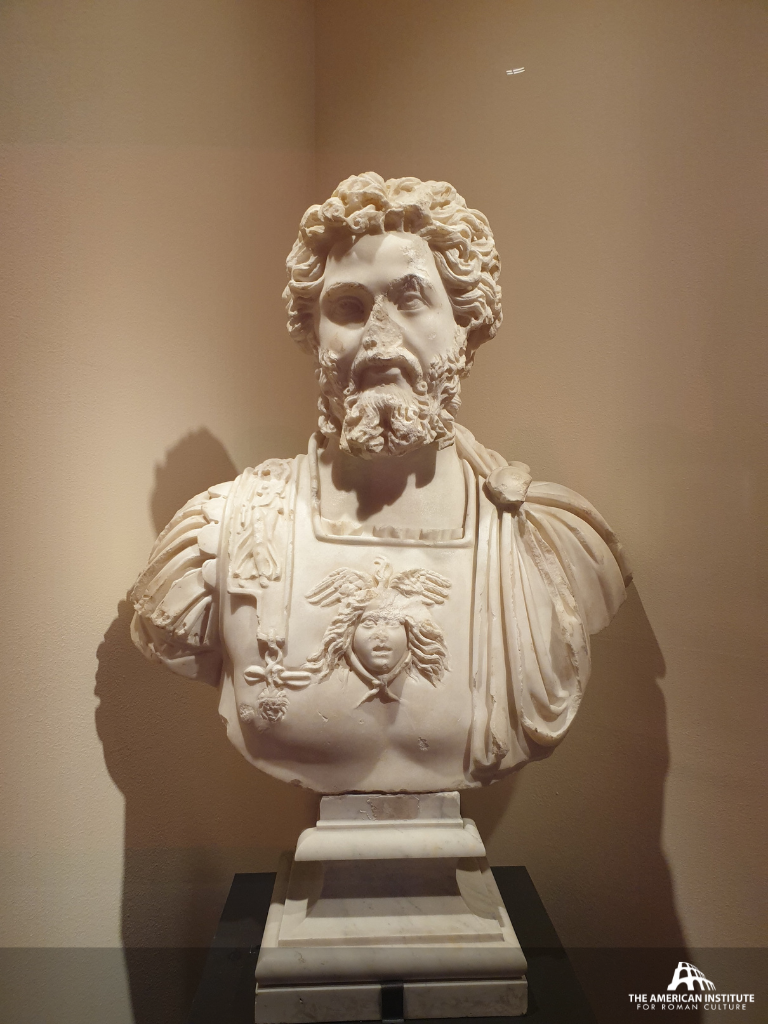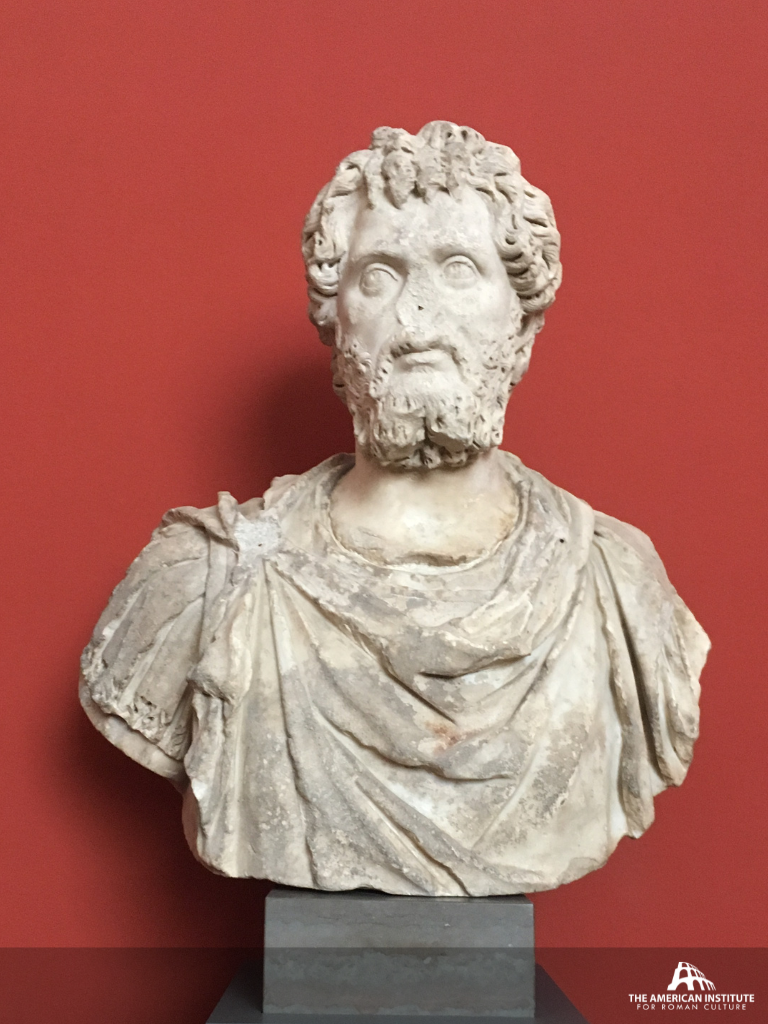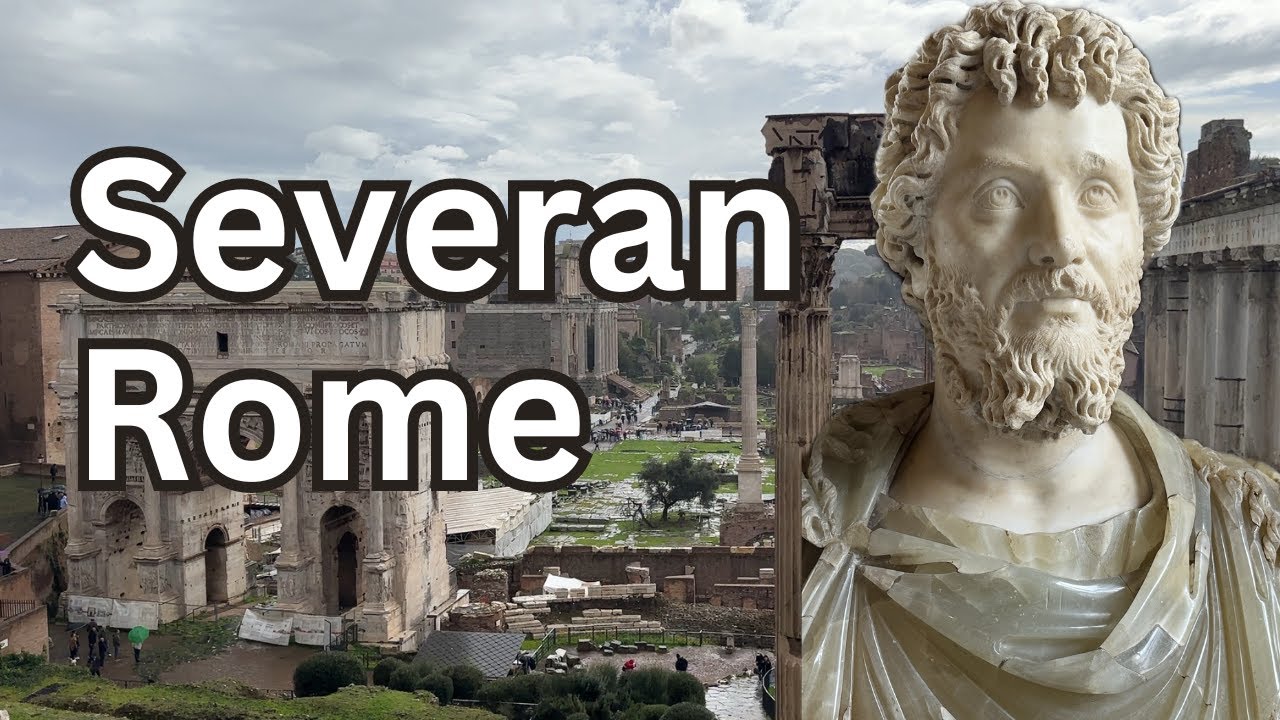Official Name: IMPERATOR CAESAR LUCIUS SEPTIMIUS SEVERUS PERTINAX AUGUSTUS
Birthdate: April 11, 145 CE.
(Historia Augusta, Life of Septimius Severus, 1)
Birthplace: Leptis Magna, Libya.
(Historia Augusta, Life of Septimius Severus, 1)
Reign: Declared emperor by his troops in Carnuntum (city in modern-day Austria) in April 193 CE.
(Herodian 2.10) (Historia Augusta, Life of Septimius Severus, 5)
Marriages:
Paccia Marciana (175-186 CE)
(Historia Augusta, Life of Septimius Severus, 3)
Julia Domna (187-211 CE)
(Historia Augusta, Life of Septimius Severus, 3)
While she was living in Emesa, Syria, an astrologer predicted that Julia Domna would marry a king. After hearing this prophecy, Septimius Severus sought her out and they married in 187 CE. Their marriage was a happy one, lasting over twenty years. During his life, Septimius Severus gave Julia Domna several prestigious titles such as Augusta, Mater Augustus (Mother of Augustus), and Mater Castrorum (Mother of the Camp).
(Historia Augusta, Life of Septimius Severus, 3)
(RIC IV Septimius Severus 161B)
Children:
Death: Septimius Severus died of natural causes in Eboracum (modern-day York, England). He died on February 4, 211 CE.
(Cassius Dio, Roman History, 77.15) (Historia Augusta, Life of Septimius Severus, 18)

Bust of Septimius Severus, Kunsthistorisches Museum, Vienna, October 2019

Bust of Septimius Severus, Roma Universalis Exhibition, Rome, February 2019

Bust of Septimius Severus, NY Carlsberg Glyptothek, Copenhagen, September 2018
Septimius Severus was emperor of Rome from 193-211 CE and the founder of the Severan Dynasty. This dynasty ushered in a period of stability following a civil war known as the Year of the Five Emperors, and it would last over forty years, ending in 235 CE with the assassination of emperor Severus Alexander.
Septimius Severus was born in 145 CE in the wealthy port city of Leptis Magna in modern-day Libya, making him the first emperor from the African continent. By the year 192 CE, Severus had been inducted into the Roman Senate and commanded legions on the Danube frontier. At the end of this year, the reigning emperor Commodus was assassinated, ending the prosperous Antonine Dynasty and the Roman golden age known as the Pax Romana. Rome was thus thrust into a civil war known as the Year of the Five Emperors (193 CE). After the first two self-proclaimed emperors were assassinated in the first half of the year, Septimius Severus was declared emperor by his troops. He marched on Rome in June and won the Senate’s approval by force. Having gained legitimacy for his reign, Severus turned his attention to his two remaining rivals. By the end of the year, he had defeated them both, ending the civil war and restoring order to the empire. Severus followed up his victory with additional military campaigns. In 197 CE, he defeated his old rival Clodius Albinus and also sacked the city of Ctesiphon, the capital of the Parthian Empire. Septimius Severus returned to Rome in 203 CE and ruled directly over the city until 208 CE, when he left to campaign in Britain. In 211 CE, he died of natural causes in Eboracum (modern-day York, England).
Bibliography
- Birley, Anthony. (1972). “Septimius Severus, the African Emperor.” Doubleday.
- Grout, James. “The Severan Emperors.” University of Chicago. https://penelope.uchicago.edu/~grout/encyclopaedia_romana/severans/severans.html
193
(Historia Augusta, Life of Septimius Severus, 5-10)
197
(Historia Augusta, Life of Septimius Severus, 16)
208
(Herodian 3.14) (Cassius Dio, Roman History, 77.15) (Historia Augusta, Life of Septimius Severus, 18)
211
(Cassius Dio, Roman History, 77.15)
This content is brought to you by The American Institute for Roman Culture, a 501(C)3 US Non-Profit Organization.
Please support our mission to aid learning and understanding of ancient Rome through free-to-access content by donating today.
Cite This Page
Cite this page as: Darius Arya, The American Institute for Roman Culture, “Septimius Severus,” Ancient Rome Live. Last modified 09/27/2024. https://ancientromelive.org/SeptimiusSeverus/
License
Created by The American Institute of Roman Culture, published on 1/6/2023 under the following license: Creative Commons: Attribution-NonCommercial-ShareAlike. This license lets others remix, tweak, and build upon this content non-commercially, as long as they credit the author and license their new creations under the identical terms. Please note that content linked from this page may have different licensing terms.


